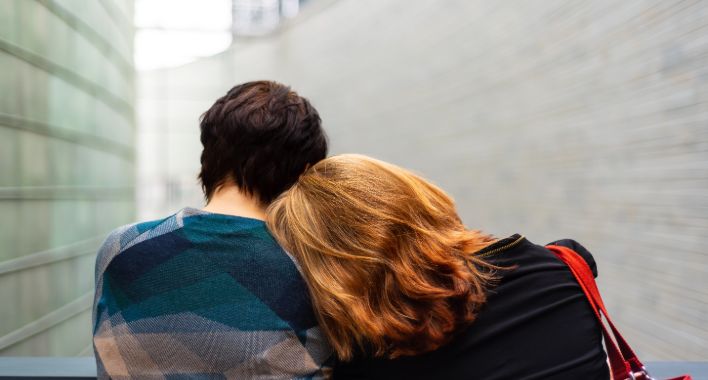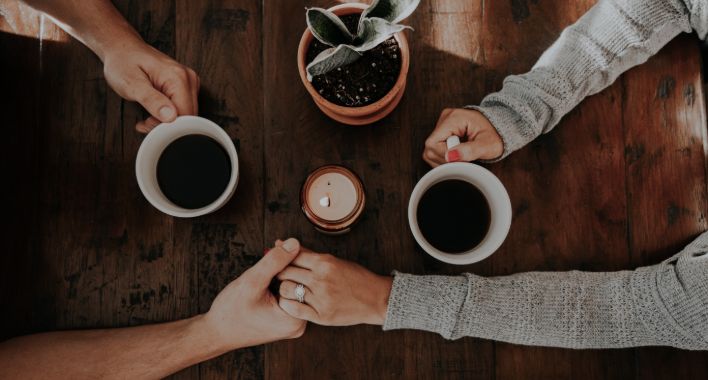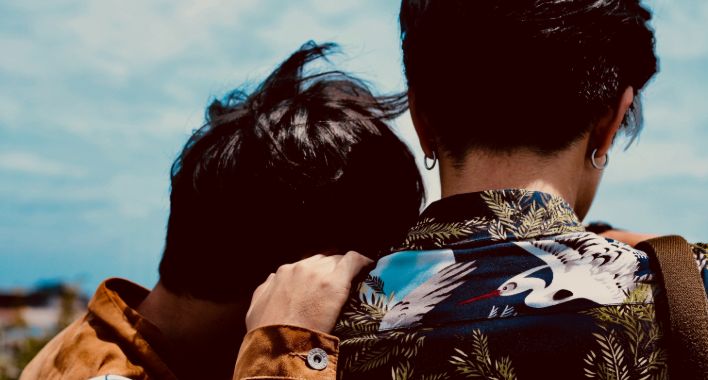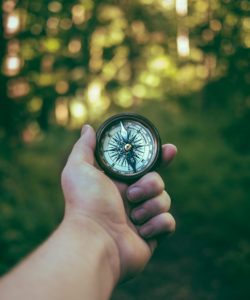Relationships are born, develop and die with or without a pandemic. It is clear that the life cycle of a relationship is influenced by the environment, by external circumstances: whether there is an emergency or not, confinement, distance, economic level of the members of the couple, the house they share, etc. Thousands of circumstances can have an influence. Excesses in these circumstances always test the strength of the bonds on which a relationship stands and the solidity of its commitment. That is to say, the mutual desire to project into the future their common project, that which they share.
Surely the confinement will have made many couple relationships that were incipient, more superficial or weak, to be consolidated. It will also have caused others to deteriorate to the point of having to break up, either because of excessive distance or because of too much living together. The health emergency that we have experienced has been something rare, stressful, unexpected and has to influence us by force, also in our relationships (with our partner, family, friends, colleagues, etc.).

As to how many couples have stayed on the road or will stay on the road in the next few weeks, it will be hard to tell. We cannot know for sure how common it is or will be for relationships to break up specifically because of this situation. Nor can we say that all the breaks that are occurring in this period are strictly due to what has happened and that they would not have happened if we had continued in the “previous normality”.
Many couples had to suddenly decide whether or not they would start living together during confinement. This decision has saved, but also destroyed other relationships.On the other hand, when it comes to quantifying this phenomenon, the number of divorces will be an indicator. However, the bureaucratically formalized relationships are not the only ones that exist, but rather a part of them. Many other breakups, like many other “unions”, will remain unquantified.
Will we improve?
It depends on a lot of things. It depends on environmental factors (external circumstances) and more personal or intra-psychic factors (our psychological characteristics: personality, strength, maturity, degree of optimism, etc.) In any case, it is clear that the situation remains very uncertain in many respects. Mainly in two.
The first concerns health care and the degree of real responsibility we each have as regards to it: how much real risk is there in meeting that person, in having physical contact with him or her, in going back to work at the office or in my child doing this or that activity…? I cannot know for sure. It may be too high, too low, or none at all, and not knowing is very uncomfortable.

The second concerns how the social, working and economic environment will evolve. In other words, our activities, our work, the crisis at different levels. Uncertainty is always uncomfortable but leaves a margin for us to face it from an optimistic perspective (confidence in the future, focus on what is going well or is recovering) or a pessimistic perspective (distrust of the future, despair, focus on what is going badly or will start to go badly). Both approaches may be equally realistic, but they influence our mood, our openness to experience and the messages we convey to others, that is the environment we individually help to create, in different ways.
On the other hand, depending on our personality but also on how we have coped with the health crisis, we will come out with better personal resources or with more loss. In this respect, it is necessary to judge our situation in a realistic way.
It is very difficult to come out stronger or more optimistic if I have had serious personal losses, if I have been seriously ill or am seriously ill, if I have lost my job, if my relationship with my partner has been ruined or other personal projects of different kinds that were important to me have been ruined… Resilience exists, of course, but it does not always occur to a high degree, we are not superheroes. Trusting the capacities of human beings is important but always with a vision that is close to reality.
Through this combination of how our “way of being” is and what circumstances we have had to live, is how we will give meaning to what we have experienced and are experiencing and how our identity will be transformed. Some people will feel stronger now, wiser or more experienced in life. Others, however, will have an image of themselves as more vulnerable, with less hope for the progress of humanity, with less trust in the social future and in their own, failed or defeated as workers.
Making “radical” decisions
Popular wisdom reminds us that “in times of trouble, don’t relocate”. That is, when we are in a moment of anxiety or serious personal crisis, with our emotions altered and intensified, our mind “revolutionized”, etc. the recommendation is to postpone those changes or radical decisions that are not strictly urgent.
This is because, although in the middle of a personal crisis it is difficult to see it, the normal thing is that this level of intensity and confusion dissipates in a matter of days, weeks or months (depending on the case) so that what we used to see as a possible “necessary radical change/decision” when we calm down is now seen as unnecessary or even very harmful. If we have already made that change, we may seriously regret certain radical decisions we made in the heat of a serious personal crisis, in a moment of confusion or obfuscation.
In contrast, sometimes certain radical decisions are essential or cannot be postponed and we have to make them and ” let it be God’s will”. If after a while it turns out that they were harmful we must try to give them a meaning that makes them more tolerable, as opposed to labeling them as “serious mistakes of our life”.
In short, if radical personal decisions are not essential and we can wait a few days, weeks, or months to see how things evolve and, above all, how we evolve, we should then wait, not be impulsive, and see what happens.
Relationships and the pandemic
Relationships in general and those of couples in particular have evolved, or rather, have been affected, in two important respects: methods of communication and the way in which living together is managed or experienced.
As for communication, the challenge of keeping affection alive, or the spark for couples, through telecommunications has been present. These have done the job, but it is clear that they are not optimal: interpersonal relationships must be fed above all by the analogical, whenever possible, over the digital. In the case of couples who have lived together, it can be said that communication has been intensely analogical, very uninterrupted, always with the challenge of not becoming invasive or burdensome or, on the contrary, of not becoming distant.
In March many couples who were not living together had to make decisions quickly – and without that decision being on their “agenda” – regarding whether they would spend the confinement together or remain each in their own home. The result of this decision may have saved many relationships but probably has also dynamited many others, because of the separation/coexistence itself and also because of the peculiarity of this separation/coexistence (where it says “peculiar”, we must understand extreme, intense).
The situation remains uncertain as to how our health will be and what social environment, we will breathe in the coming monthsIn other words, the health emergency will have unexpectedly accelerated the life cycle of many relationships both in the direction of consolidating them and in the direction of breaking them.
The role of sadness
All emotions are normal. What you need to see in each one is its degree of intensity, frequency and duration. Also the degree of coherence that this reaction has with the events that have really happened or are happening.
If I’ ve had significant losses in my life (for example, a break-up of a relationship, or the death of a loved one – which is also a break-up of a relationship) it is normal to be sad (and angry, and guilty and afraid… or who knows if released, in a sense). If apparently everything is going well for me but I am in a low, melancholy or hopeless state of mind then we need to look more deeply at what is really going on and what those emotions are about.










